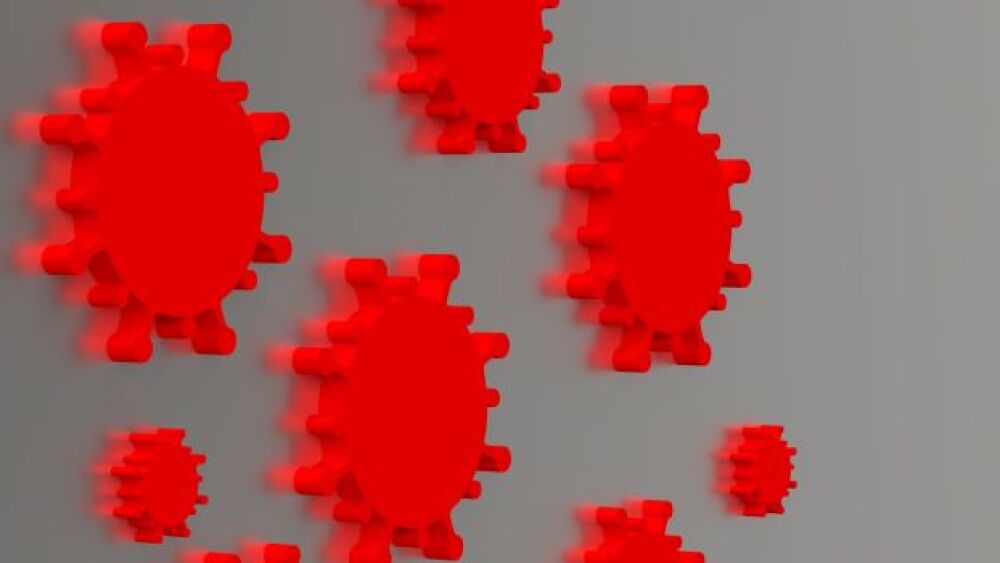As the 10th annual IDWeek (Infectious Disease Week) Conference begins, treatments aimed at COVID-19 will certainly dominate the program.
As the 10th annual IDWeek (Infectious Disease Week) Conference begins, treatments aimed at COVID-19 will certainly dominate the program. BioSpace rounds up some of the data that will be presented at the virtual conference.
AstraZeneca
AstraZeneca will present an abstract regarding its investigational long-acting antibody (LAAB) AZD7442 for COVID-19. Data from the Phase III PROVENT study regarding AZD7442 for the prevention of COVID-19 will be presented at the conference. In August, the company announced that the PROVENT study hit the mark as AZD7442 achieved a statistically significant reduction in the incidence of symptomatic COVID-19. AZD7442 reduced the risk of developing symptomatic COVID-19 by 77% compared to placebo. There were no cases of severe COVID-19 or COVID-19-related deaths in those treated with AZD7442. In the placebo arm, the company reported three cases of severe COVID-19, including two deaths.
A key selling point for AstraZeneca’s LAAB is that more than 75% of participants had co-morbidities, which include conditions that have been reported to cause a reduced immune response to vaccination.
Additionally, the company will also present data for nirsevimab, an investigational treatment for the respiratory syncytial virus (RSV). The company will present data from the Phase III MELODY trial that shows nirsevimab, an investigational long-acting antibody co-developed by AstraZeneca and Sanofi, has the potential to protect all infants entering their first RSV season with a single dose.
AstraZeneca will also include a late-breaking oral presentation of additional Phase III results for its COVID-19 vaccine, AZD1222.
“The compelling data being presented at IDWeek reflect our scientific advances across infectious diseases in response to the COVID-19 pandemic and surges in respiratory syncytial virus cases. Our PROVENT Phase III data demonstrate AZD7442 may offer much-needed protection for vulnerable populations who may not mount an adequate immune response to COVID-19 vaccination,” Mene Pangalos, executive vice president of BioPharmaceuticals R&D at AstraZeneca said in a statement.
Adaptive Biotechnologies
Seattle-based Adaptive Biotechnologies will present data highlighting the ability of its investigational T-cell test to produce a quantitative picture of the T-cell response to SARS-CoV-2. Antibody response is one of the most-talked-about points regarding COVID-19 efficacy, but Adaptive noted that T-cell responses are more durable and broader than antibody responses. T-cell responses recognize many different parts of the SARS-CoV-2 virus, including both spike and non-spike proteins, the company said. At IDWeek, Adaptive will present data from its study assessing the performance of T-Detect COVID, aT-cell-based test designed to confirm recent or prior SARS-CoV-2 infection from whole blood samples.
Adaptive Chief Medical Officer Lance Baldo, M.D., said the focus on vaccine-induced antibody response is incomplete because antibodies do not provide the entire picture.
“Adaptive’s immune medicine platform enables us to identify T-cell response signals repeatedly and reliably from the cells found in a tube of blood, and to translate those insights into therapeutic and diagnostic tools. As we support more patients and our knowledge accelerates, we can scale quickly, exploring applications in infectious diseases and beyond,” Baldo said in a statement.
Neoleukin Therapeutics
Also based in Seattle, Neoleukin will present data on the capabilities of its de novo protein decoy, NL-CVX1, to block SARS-CoV-2 infection in certain viral variants. NL-CVX1 acts as a hACE2 decoy. Research has shown it neutralizes SARS-CoV-2 both in vitro and in vivo, inhibiting SARS-CoV-2 replication. New data presented at IDWeek demonstrates that a single intranasal dose of NL-CVX1 protects transgenic hACE2 mice from SARS-CoV-2 infection. The company said this protection persists following a viral rechallenge one month later. Additionally, data indicate that NL-CVX1 effectively outcompetes binding of the SARS-CoV-2 receptor binding domain to hACE2 in the variants of concern that were tested.
Findings from the study also showed the ability of NL-CVX1 to neutralize pseudoviruses expressing spike proteins of SARS-CoV-2 variants.
“The global impact of the SARS-CoV-2 pandemic and emerging variants of concern highlights the urgent need for effective prophylaxis and early treatment of SARS-CoV-2 infection. These data demonstrate that NL-CVX1 is resilient to mutations of the SARS-CoV-2 spike protein and provide evidence of both the potential value of NL-CVX1 and the broad power and promise of our de novo protein design platform,” said Jonathan Drachman, M.D., chief executive officer of Neoleukin said in a statement.
Humanigen, Inc.
Weeks after the U.S. Food and Drug Administration (FDA) rejected the company’s Emergency Use Authorization request for lenzilumab, a potential treatment for COVID-19, Humanigen will present data from the LIVE-AIR Phase III study.
The abstract will demonstrate the safety and efficacy of lenzilumab in hospitalized COVID-19 patients. The LIVE-AIR study achieved the primary endpoint of survival without ventilation measured through day 28 following treatment.
Lenzilumab is an anti-human granulocyte macrophage-colony stimulating factor (GM-CSF) monoclonal antibody designed to prevent and treat an immune hyper-response called “cytokine storm” associated with COVID-19. GM-CSF is a cytokine that has been linked to poor outcomes in COVID-19 patients.





